While public attention for past years had been on Nordstream2, Gazprom and former German chancellors (mine too), today I learned even more important facts, that in my opinion were the main reasons Putin decided to invade Ukraine. Originally I intended this to be a twitter tweet, then thread and eventually landed here.
It’s Ukrainian Gas, but let’s setup the scene first.
Russian Income
Russian economy is centered around natural resources and their exports. Russia holds largest proven natural gas reserves in the world according to American EIA:
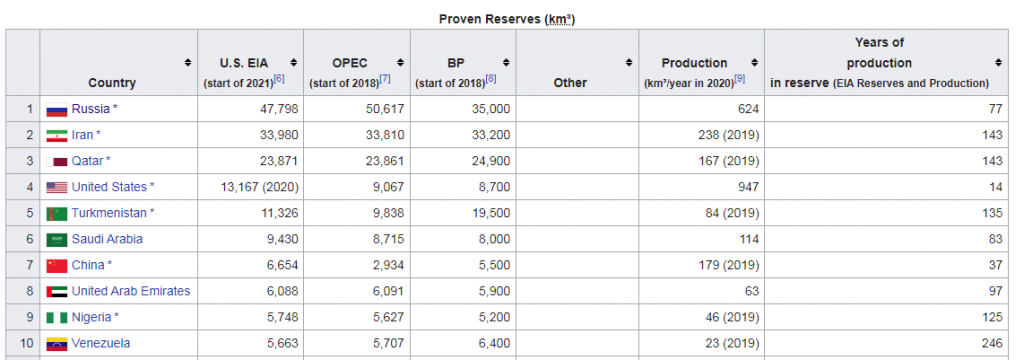
For oil, proven reserves put Russia at 8th spot, which mainly include western Russian fields. Eastern parts and especially Arctic may hold even greater capacities, but Russia lacks R&D of American drillers and have not made significant strides towards tapping their own potential in exploring harder fields.
In 2020 oil and gas industry contribution to Russia’s GDP was 15%. Lower prices and demand due to pandemic lowered this share from 19.2% in 2019 (source). I would gladly point you to Russian statistics agency, but it’s offline at the time of writing.
In 2020, oil and gas generated $219 billion. GDP for 2020 was $1,478 billion. This is a major source of revenue, 30%+ of which comes from European customers.
NATO “Threat”
Putins’ claims about NATO threat is of course hysterically incorrect. NATO has never taken offence. Whether US had anything to do about expanding sphere of military influence is another topic I can not have a qualified discussion about.
From perspective of ex Soviet states it’s simply a security guarantee (we often question this) from past aggressor. However if you want to bend the narrative on RTV, you can easily say NATO is closing in on our great land and we must defend our fellow slavs.
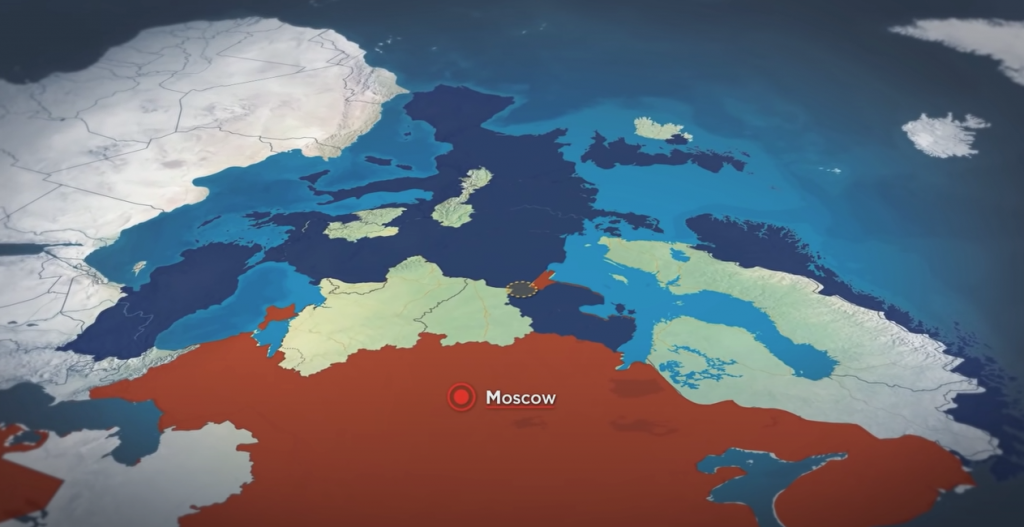
While states themselves are not thinking of expanding, NATO expansion is blocking Russian ability to expand its diminishing sphere of influence. Diminishing as per:
- Shrinking population
- Lacking R&D investments and tech innovation
- poor rule of law, freedom of speech
- dysfunctional capital allocation and access to capital
Now let’s get closer to the cherry.
Ukraine & Energy
Ukraine has all the infrastructure to consume and relay gas to Europe, which was laid in 1970-1980s when it was part of Soviet Union. Ukraine’s independence brought economic challenges for Kremlin, because now it started charging transit fees, that amount to billions dollars annually.
As of 2005 80% gas flow to Europe passed through Ukraine. Map from 2005 shows active pipelines with proposed Nordstream 1, which was commissioned in 2011-2012.
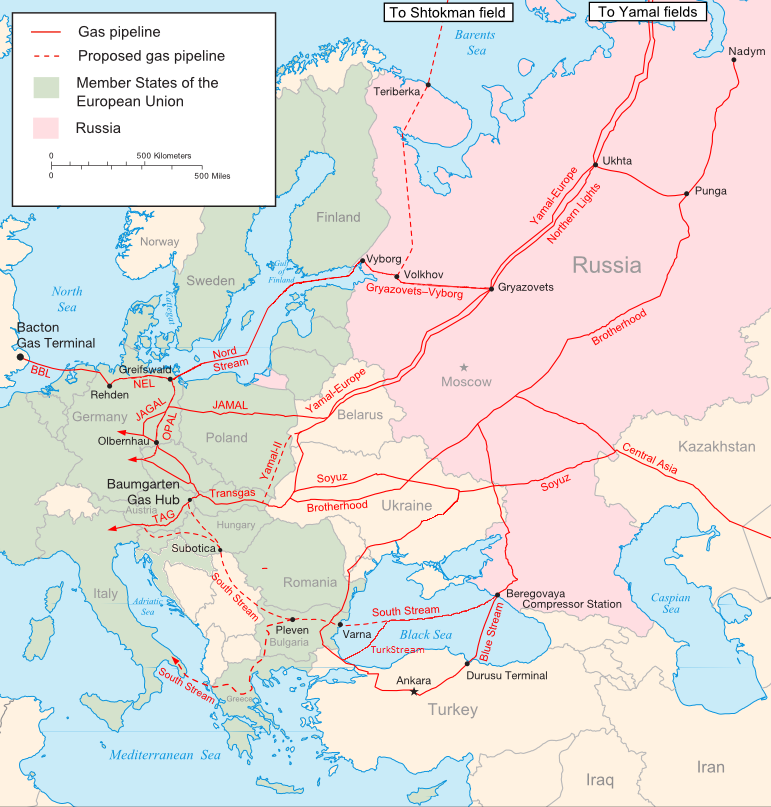
Russia grew increasingly worried about its major infrastructural dependence single sovereign nation. As we all know Nordstream 1,2, blue and turk stream pipelines were built later on, which reduced reliance on single nation.
Gas Disputes
Ukraine – Russia gas disputes date back to the independence of Ukraine in 90’s and the story complex to say the least. It is intertwined with politics (corruption too obviously), and … war. Everyone likes lists, lists are simple. What stuck out for me personally [own comments in brackets]:
- 90s: Russia claims Ukraine has debts [for infrastructure?];
- Russia lowers or completely shuts flow through Ukraine multiple times;
- Ukraine diverts (steals) part of transit gas intended for EU clients for own needs (at times admitted, more often false accusations);
- Russia succeeded [in buying political will?] to reduce own gas production and import gas from Russia in exchange for cheaper gas;
- Pricing for both transit and own needs were a constant issue of disputes;
- Single dispute example: In result of 2009 gas crisis Gazprom lost $1.1 billion of unsupplied gas revenue, Ukraine incurred losses of its steel and chemical industries in addition of loss of $100 million transit fees;
- In 2010, with pro-russian Yanukovych as president, Russia lowered gas prices for Ukraine by 30% in exchange for permission to extend Russian naval power at Black Sea, which opposition described as “sell out of national interests” [staging move];
- Pricing agreements were denounced by Russia following Crimea annexation, Ukraine’s gas bill increased +80% as a result;
- In 2014 June 15% of EU gas demand supplied by Russia was piped through Ukraine;
- In 2015 following disputes with Russia Ukraine started to purchase natural gas from Poland, Slovakia, and Hungary.
Please note, that majority of these points are dynamic and have changed throughout the years into opposite depending on political winds. Also note, these points by no means tell all the necessary context.
Ukrainian Gas Deposits – Russian Uh Oh
Although I could not confirm the timeline, this video claims, that in early 2012 claims were made, that Ukraine’s Exclusive Economic Zone (EEZ) within the Black Sea may contain gas deposits of more than 2 trillion cubic meters.
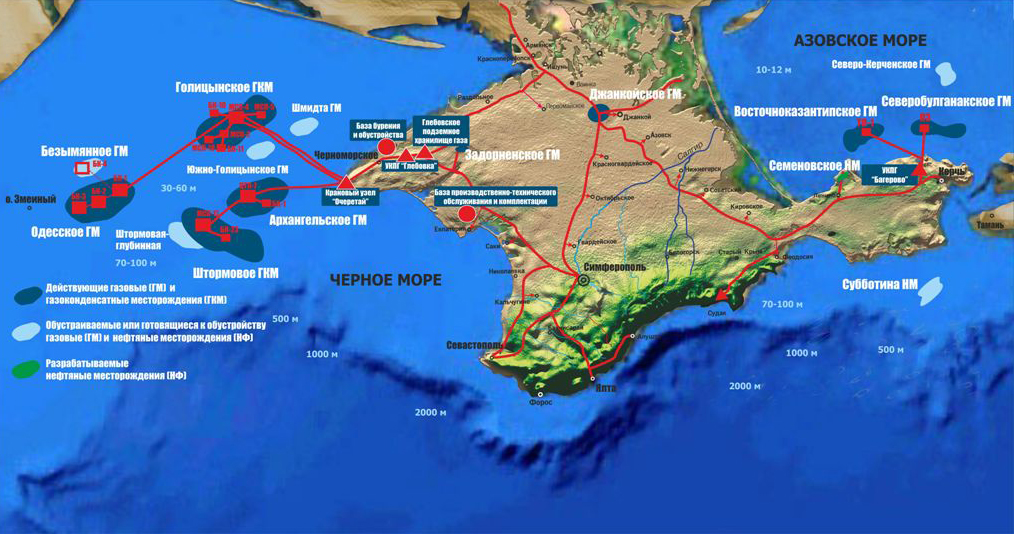
Reuters reaffirms the 2 trillion m3 figure:
Ukraine has Europe’s third-largest shale gas reserves at 42 trillion cubic feet (1.2 trillion cubic metres), according to the U.S. Energy Information Administration, behind France and Norway.
Ukraine’s State Geological Service, which is more optimistic than the U.S. EIA, estimates the reserves of the Yuzivska area alone at 2 trillion cubic metres and those of Olesska at 0.8 to 1.5 trillion.
Reuters
How does this compare to Russian reserves?
In 2020, Russia had proved reserves of 37.4 trillion cubic meters of natural gas, up from 34.1 trillion cubic meters recorded a decade earlier
Statista
Shale Reserves
On top of that, shale revolution brought know-how to access resources from places not accessible before. And it turns out, Ukraine has shale oil reserves in East Carpathians and… [drumroll] Luhansk and Donetsk regions.
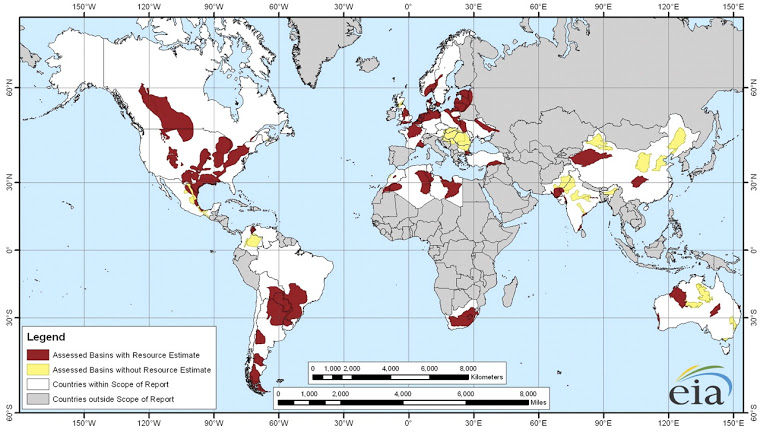
So what do we have at 2011-2012?
- Ukraine is economically deprived and lacks capabilities and capital to capture its resources
- After Orange Revolution (2004) in Ukraine took a western political course which caused adversarial relations with Russia.
- Russia is weaponizing gas against Ukraine
2012 – Ukraine Partners with Western Companies
In a natural move to reduce its’ energy dependence from Gazprom Ukraine tendered their prospective fields to professional drillers. Reuters article from March 2012:
Ukraine has picked Royal Dutch Shell and Chevron Corp as partners in projects to explore and develop two potentially large shale gas fields […]
The Yuzivska area, won by Shell, is located in the eastern Donetsk and Kharkiv regions while the other, Olesska, is in the western Lviv region.
And then Putin lowers the voice:
Moscow says it would cut the price for Ukraine only if Russian gas giant Gazprom is allowed to buy into Ukrainian gas pipelines, which tranship the bulk of Russian gas to Europe, a trade-off Ukraine has so far refused to accept.
Lithuanians have seen this movie, before building own our LNG terminal in Klaipeda, Russia was squeezing gas prices and capitalizing on its gas supply monopoly power. As plans to build terminal progressed, prices were lowered to help opposition build a case against economic viability of terminal.
Harvard International Review as well as another Reuters article from 2013 hinted at real possibility Ukraine could become a net exporter of natural gas. For Europe – that’s very warm news. More suppliers – less risk, higher reliability and price negotiating power. Well, in democratic dream…
Russian Retaliation
Putin had little time to act. Crimea annexation and Luhansk, Donetsk conflicts took shape in 2014. I’m not going to touch on a conflict itself much.
However to research a topic, I refreshed memory with this exemplary video. It covers a lot of ground from Maidan protests up to current invasion covering A LOT in between (propaganda machine, Russian army involvement, downing of civilian plane, lobbying EU politics, Russian information war and to get up to date with reforms introduced by President Volodymyr Zelenskyy). Recommend!
Just to drive the point home: In 2014 Russia attacked the very areas Ukraine had found its potential energy independence: EEZ of Crimea Peninsula, Donbass region.
Naturally as a consequence planned projects fell through:

Russia took over Ukraine’s shot at energy independence and took over existing extraction capabilities. Polish center for Eastern Studies (OSW) had a great article covering economic implications for both nations after Crimea annexation.
The loss of local energy and mining assets will be particularly expensive, above all the company Chornomornaftohaz. This is one of three state-owned mining companies owned by NAK Naftogaz Ukraina, and was one of the fastest increasing gas producers in recent years […]. Nevertheless, Ukraine’s loss of Chornomornaftohaz’s production does not have to fundamentally change its gas balance (with the exception of gas consumption on the peninsula); however, the considerable efforts made in recent years to develop the company (including the purchase of two new drilling platforms) will represent a big loss.
The loss of Crimea is also associated with a reduction in size of Ukraine’s exclusive economic zone on the Black and Azov Seas. It practically negates the possibility of Ukraine implementing projects to extract hydrocarbons from the Black Sea shelf which it had planned jointly with Western companies.
Russia itself can’t tap into shale due to sanctions, but disabling competition was the main motive.
Black Sea Dominance
Another important achievement by Russian 2014 operation was de facto naval domination in Black Sea. In 2018 BlackSeaNews noted:
The only thing that can be considered an absolute “success” in the Russian development of the Ukrainian shelf is the creation of military mini-bases on oil platforms.
The Russian military installed radar stations on the captured Ukrainian rigs and platforms. The facilities have about 130 armed servicemen. The gas production is carried out under the protection of the Russian warships
Conclusions
Ukrainian energy sector context prior to 2014 is critically important context explaining Kremlin’s motives, which flew under the radar for me personally. As for 2022 Ukraine invasion, media is saturated with German – Russian dependency, but also lacks the same necessary background I aimed to fill.
Too Young, Too European to Buy
What what I have learned past weeks, Zelenskyy did not follow his predecessors in begging for EU or NATO admission. He sought to transform slavic mindset and instead of bringing Ukraine to Europe, aimed to bring Europe in the minds of Ukrainians first (from His 2019 inauguration speech). He won with over 3/4 votes and ~62% voter turnout.
The recommended video way above (mini documentary on Ukraine 2013-2022) covers impressive reforms he brought about in the short years he was in office. I also applaud his first principles thinking and what needs to change in order to bring real change. Rule of law.
During the presidential campaign, Zelenskyy promised bills to fight corruption, including removal of immunity from the president of the country, members of the Verkhovna Rada (the Ukrainian parliament) and judges, a law about impeachment, reform of election laws, and providing efficient trial by jury. He promised to bring the salary for military personnel “to the level of NATO standards”
Presidential Candidates Review, 2019
Stable law -> foreign capital -> higher paid jobs -> more prosperous nation.
Inevitable EU / NATO accessions
I believe Ukraine was on a clear path within a decade of NATO and EU membership if it succeeded to stabilize economy and bring necessary reforms. Putin knows what’s up: if Ukraine at least gets stronger economically (not even talking about NATO membership and inevitable illegal annexation of Ukraine’s regions in 2014), Ukraine may take a shot at pushing “separatists” on its own and that on Kremlin’s mind can not ever happen.
I doubt NATO would accept a member, which has territorial disputes, but in that case, that’s an immediate open door for war with far superior alliance.
Other Interests
My unconventional and naive take prior to escalation was food, which is an important, but by no means the sole focus, merely a bonus.
Speaking of which, wheat YoY doubled in recent weeks. Expect socioeconomic volatility in rest of 2022-2023. As for Ukraine… I wish all Ukrainians a strength of Mind and Heart.
I would like to close with a cynical sentence from an never old in actuality movie: “The Network” (1976), that captures the spirit of majority of paragraphs in this post.
World is a Business Mr. Beale.

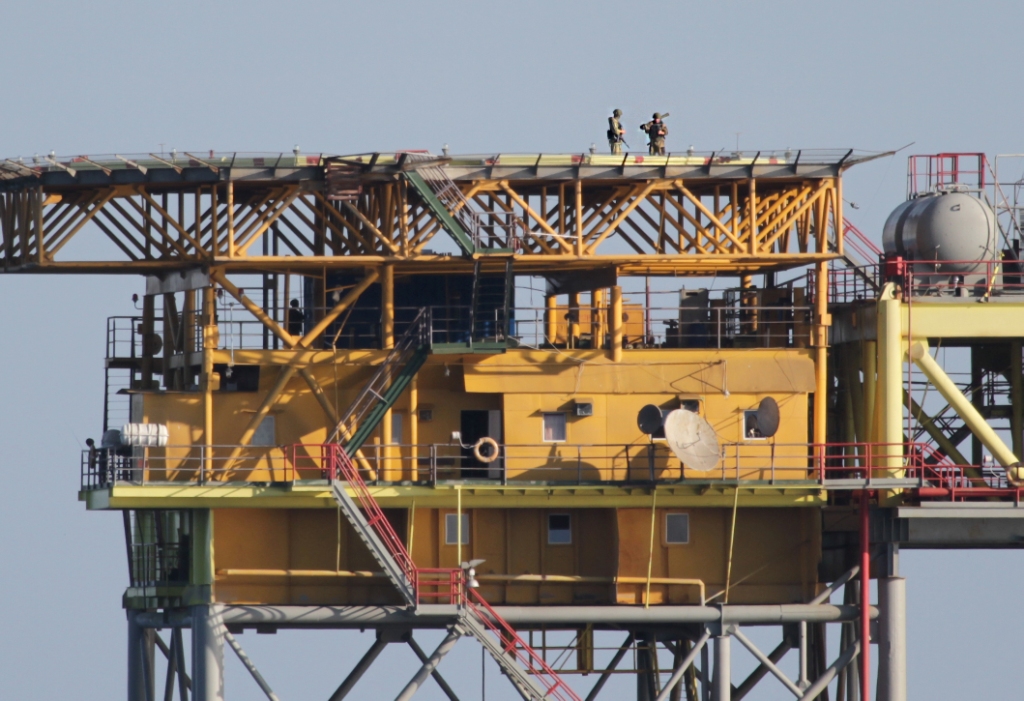




Leave A Reply